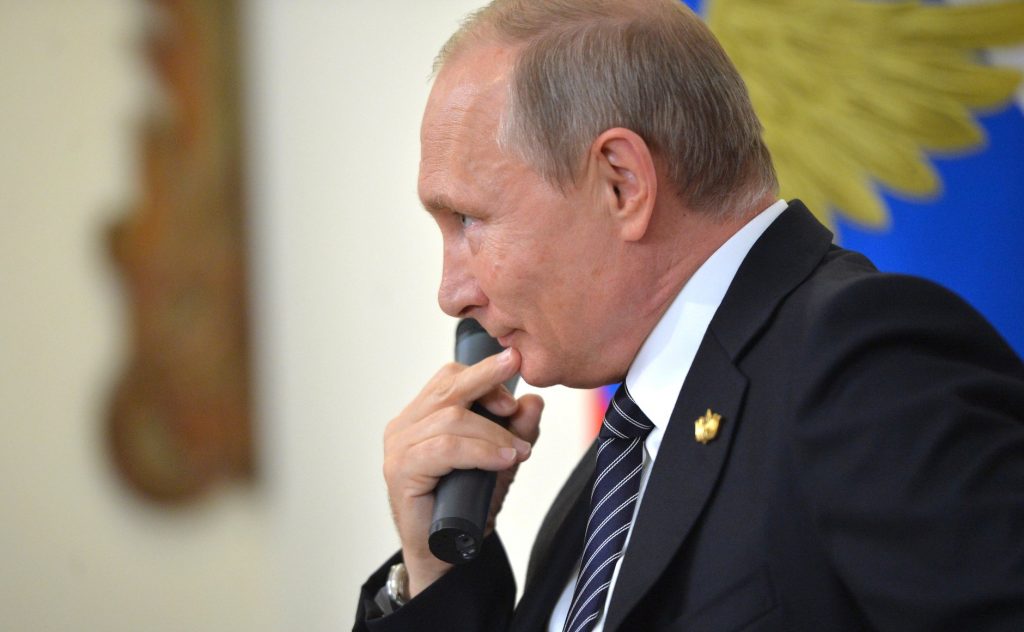Russia is trying to influence the outcome of the American presidential election, but also to damage its very legitimacy in the eyes of the voters. The US is right to respond by naming the culprit.
American politicians and political organizations are being consistently targeted by the Russian hackers. This year Russian intelligence agencies broke into the Democratic National Committee (DNC) systems, stealing massive amount of data. On July 22, 2016, just before the Democratic convention, this information was released, including emails that politically damage the Democratic Party. While traditionally Russians preferred Democratic presidential candidates whom they considered softer than the Republicans, this time they openly prefer Donald Trump. Ominously, there is now evidence that Russians may doctor the documents before they release them, increasing the possibilities of potential propaganda manipulations.
The concept of ‘active measures’ was developed by the KGB and has been implemented in practice by both USSR and Russian Federation on numerous occasions. It basically means turning political process in the targeted nation on its head, making it malignant so that it harms that nation instead of serving it. In Georgia, like in other post-Soviet states, we are closely familiar with these methods, having been on their receiving end ever since regaining independence in 1991. But now the crisis of the American political elite has given the Kremlin an opportunity to target the United States.
Even more dangerous than the DNC hack can be a Russian cyber assault on the state voter registration systems. In August FBI issued a nationwide alert warning about possible cyber intrusions into the state election offices. By altering or damaging voter databases hackers can cause disarray on the Election Day, undermining voters’ trust in the legitimacy of the election and its outcome.
Donald Trump and his campaign team areconsistently issuing the message that election is going to be rigged. If this gets combined with serious disruptions in the voting process on the Election Day, many voters could accept and endorse Trump’s claims about illegitimacy of the election, further inflaming the already tense political situation. America today is polarized ideologically and socially. Add to this mix loss of consensus regarding due constitutional process, and crisis becomes possible.
What Russia is doing is no trivial thing. This is probably the most aggressive foreign interference in the history of American presidential elections. The Americans might be too busy with internal issues right now, but eventually such Russian actions are bound to result in an adequate and unpleasant response from the American political and strategic establishment.
Why have the Russians chosen such reckless course of action? The answer is that Putin’s regime is running out of money and is desperate to bag some victories while it can. Moscow it keeps investing heavily in the military forces, including very large-scale military exercises this year.
The Kremlin leadership sees restoration of Russia’s old empire – or, short of that, some of the hallmarks of parity with the United States – as the only solution to its structural problems. Domestically that would greatly bolster the regime’s support, despite expected material hardships for the populace. With the rest of the world that would give Moscow a number of new powerful forms of leverage, such as exclusive control of the land trade routes between Europe and China that are now being developed.
More assertive American foreign policy is seen in the Kremlin as the key obstacle for Russia’s aggressive actions against its post-Soviet neighbors and beyond. Internal crisis in the United States, leading to a more inward-looking US, would give Russia an extended window of opportunity to recover its misplaced crown jewels – foreign military bases in Syria, Cuba and Vietnam are openly considered.
The acrimonious US election campaign as the prospect of even more divisive Trump presidency is certainly viewed in Moscow as a tactical opportunity. But Donald Trump is too controversial for the Kremlin to just count on his victory. Discrediting the very process of the presidential elections and thus the democratic legitimacy of the leader of the free world can do much more lasting damage.
The Kremlin playbook is well tested in this domain, by the decades of subversive activity aimed at their unfortunate neighbors. Now these honed skills are used to target the political stability of Moscow’s arch-enemy – America itself. Putin is not reaching for its trump card because he feels strong and confident. On the contrary, he acts like a losing gambler who is going all in. But Moscow’s actions can be damaging and dangerous nonetheless. The ‘active measures’ are designed to target and exploit enemy’s vulnerabilities, and presently the US (and European) politics and society have shown way too many of them.
If there is something that the United States could learn from our experience, it is this – name and shame the culprit. Do so consistently and bluntly.
The Kremlin does its best to keep plausible deniability in the eyes of the targeted societies, or at worst, to confuse and create a cacophony of competing narratives. They must be denied this chance.
The Kremlin’s interference in another nation’s internal affairs is the most dangerous when Moscow is permitted to pretend that no such interference is happening, when its lies are presented as ‘arguments’ on par with any other. The US government, political class and media should keep exposing Russian involvement as openly and directly as possible. The less doubtful is the fact of the Russian covert activities for the American public, the less damage will Russia be able to inflict during this presidential election.
David Batashvili (@DavidBatashvili) worked for the National Security Council of Georgia in 2008-2013. He is an author of opinion articles in Georgian and Ukrainian press.

